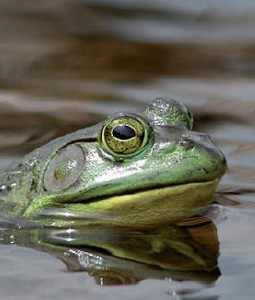DIVERSITAS, Paris
11-Oct-2009
Growing water needs, mismanagement leading to ‘catastrophic decline’ in freshwater biodiversity
 The world will miss its agreed target to stem biodiversity loss by next year, according to experts convening in Cape Town for a landmark conference devoted to biodiversity science.
The world will miss its agreed target to stem biodiversity loss by next year, according to experts convening in Cape Town for a landmark conference devoted to biodiversity science.The goal was agreed at the 6th Conference of Parties to the UN Convention on Biological Diversity in April 2003. Some 123 world ministers committed to “achieve, by 2010, a significant reduction of the current rate of biodiversity loss at the local, national and regional levels, as a contribution to poverty alleviation and to the benefit of all life on Earth.”
“We will certainly miss the target for reducing the rate of biodiversity loss by 2010 and therefore also miss the 2015 environmental targets within the U.N. Millennium Development Goals to improve health and livelihoods for the world’s poorest and most vulnerable people,” says Georgina Mace of Imperial College, London, and Vice-Chair of the international DIVERSITAS program, which is convening its 2nd Open Science Conference Oct. 13-16 with 600 experts from around the world.
Full text:
See also:
What are coral reef services worth? $130,000 to $1.2 million per hectare, per year: experts
Economists, assigning values to ‘ecosystem services,’ report staggering totals and rates of return on investment
Experts concluding the global DIVERSITAS biodiversity conference today in Cape Town described preliminary research revealing jaw-dropping dollar values of the “ecosystem services” of biomes like forests and coral reefs – including food, pollution treatment and climate regulation.
Experts concluding the global DIVERSITAS biodiversity conference today in Cape Town described preliminary research revealing jaw-dropping dollar values of the “ecosystem services” of biomes like forests and coral reefs – including food, pollution treatment and climate regulation.
Undertaken to help societies make better-informed choices, the economic research shows a single hectare of coral reef, for example, provides annual services to humans valued at US $130,000 on average, rising to as much as $1.2 million.
The work provides insights into the worth of ecosystems in human economic terms, says economist Pavan Sukhdev of UNEP, head of a Cambridge, England-based project called The Economics of Ecosystems and Biodiversity (TEEB).
Coverage summary (both stories): http://spreadsheets.google.com/ccc?key=0AlbF9zth54L8dGpidEFkX2hESUY3VlhZSHo5S1ZWM0E&hl=en
